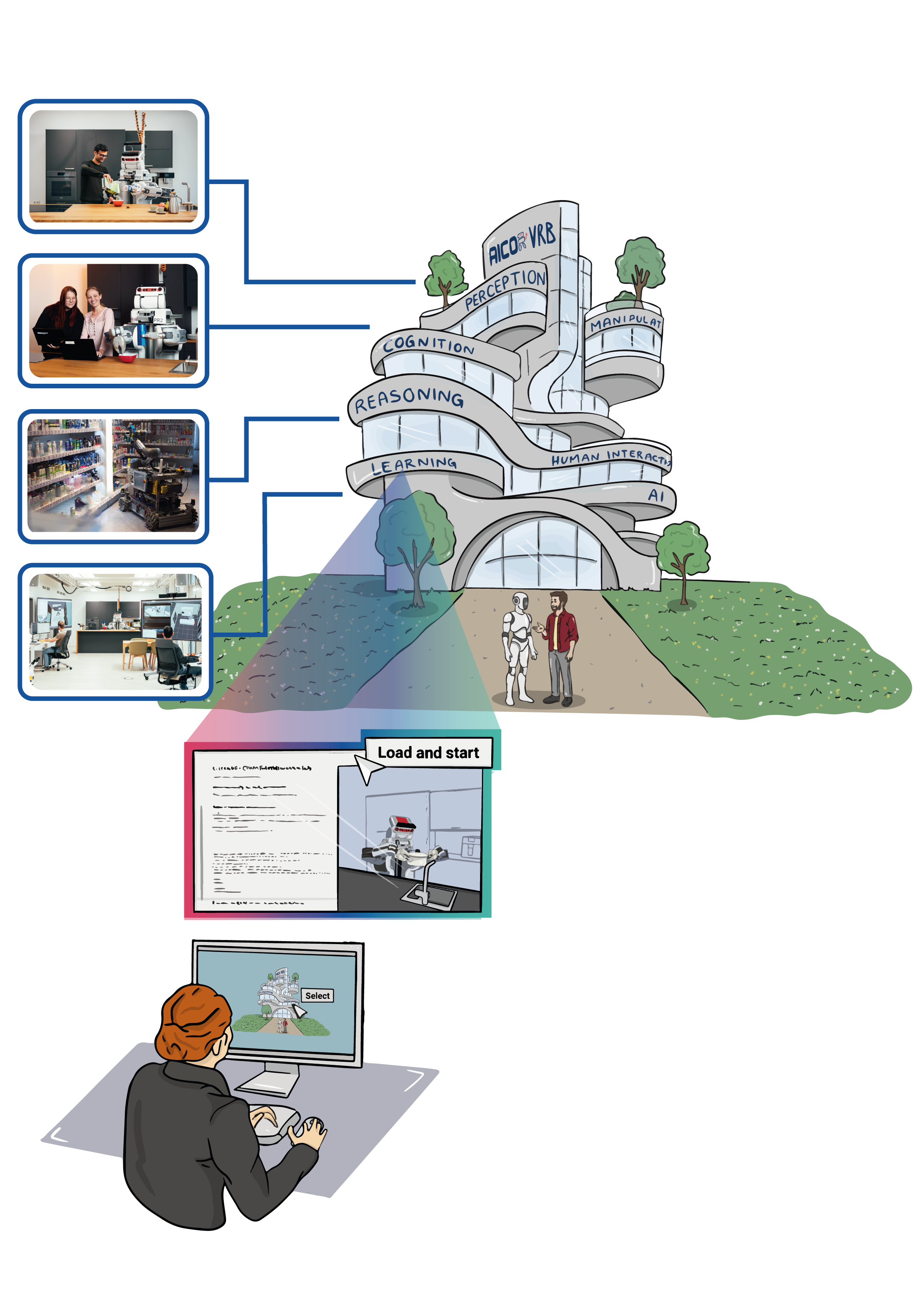In our Advanced Probabilistic Modeling and Analysis Laboratory, we focus on the innovative use of Joint Probability Trees (JPTs), a formalism that facilitates the learning and reasoning of joint probability distributions in a tractable manner for practical applications. JPTs are distinctive for their capability to incorporate both symbolic and subsymbolic variables within a unified hybrid model, without necessitating prior knowledge about variable dependencies or specific distribution families. Within the context of our Virtual Research Building, JPTs are employed to construct and analyze joint probability distributions derived from log data of robot experiments. This enables us to critically evaluate experimental outcomes and harness robot experience data for learning purposes, paving the way for advancements in robot performance and decision-making processes.
Interactive Actions and/or Examples
Representing and Learning Robot Plans as JPD
Software Components
Random-Events

is a python package for product sigma algebras and serves as query language for probabilistic models.
source code
Probabilistic-Model
is a package probabilistic circuits and other tractable probabilistic models in python.
source code
GUI-Probabilistic-Model
is an interactive querying and visualization tool for probabilistic models.
source code
PyCRAM

is the Python 3 re-implementation of CRAM. PyCRAM is a toolbox for designing, implementing and deploying software on autonomous robots.
source code




